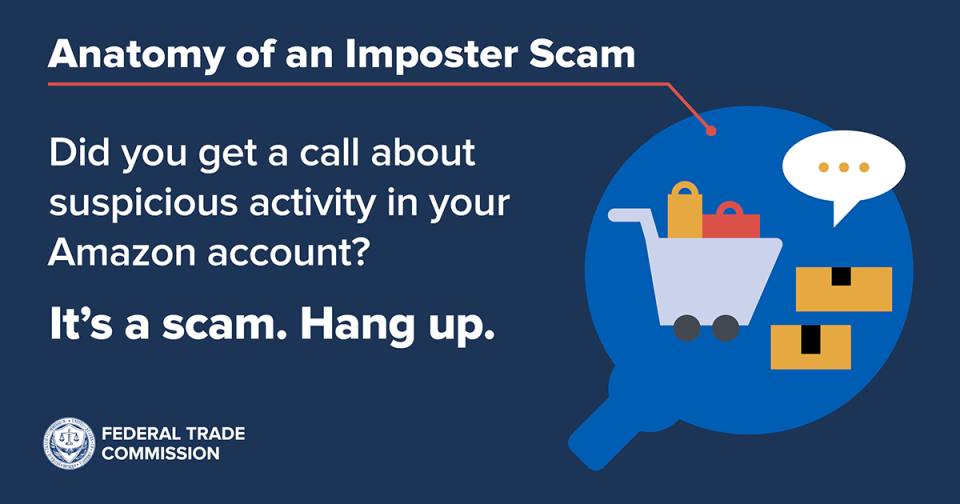
Ron Freitas
District Attorney
District Attorney
SOURCE: Alvaro Puig, Consumer Education Specialist, FTC
One way to spot a scam is to understand its mechanics. A new and complicated scam starts with a call or text message about a suspicious charge on your Amazon account. But it’s not really Amazon. It’s a scammer with an elaborate story about fraud using your identity that ends with you draining your bank or retirement accounts.Here’s what to know about this scam scenario.
It’s not Amazon calling. Scammers spoof their phone number to make it look like it’s Amazon calling. Don’t trust the number in your caller ID and don’t trust what the caller tells you. Worried about a suspicious purchase on Amazon? Log in through the website or app. Don’t call back the number that called you or a number someone left in a voicemail or text message.
No one legitimate will tell you to keep it a secret. If there’s a problem with your account or identity, always talk about it with someone you trust — especially if the stranger on the phone says it’s serious or involves a crime or claims to be from the government. That’s a scam.
No one used your Social Security number to open fraudulent accounts in your name. Scammers say this to scare you — don’t trust the person on the phone. To know for sure, get an instant copy of your credit report online for free and look for accounts you don’t recognize. Visit (or have someone help you visit) AnnualCreditReport.com.
Don’t believe a caller who says you’ll be immediately arrested for account fraud. That’s a scam. If someone stole your identity to open fraudulent accounts, complete an FTC identity theft report at IdentityTheft.gov, then put an extended fraud alert on your credit report. Do not transfer money or drain your savings to protect it from fraud.
